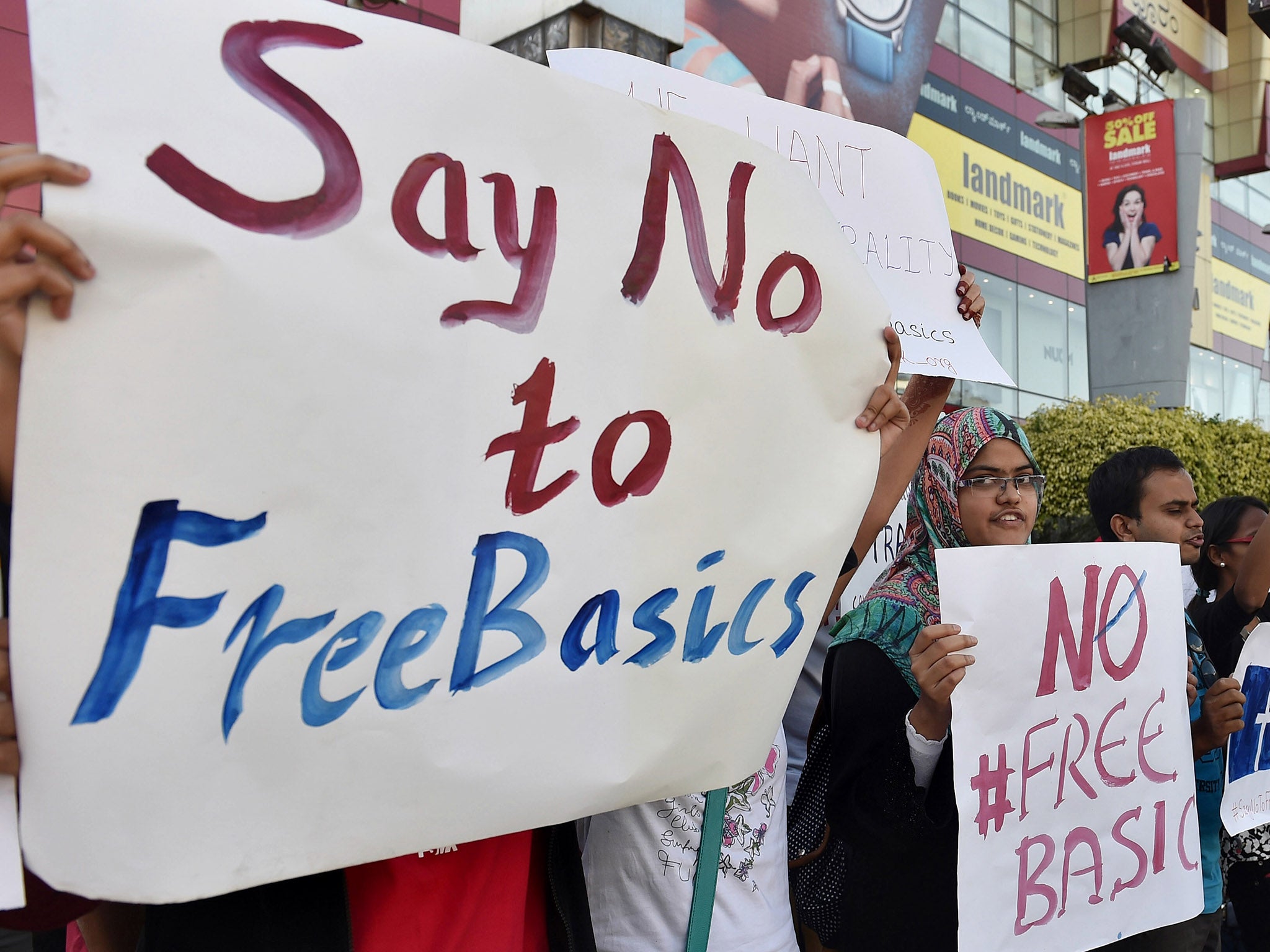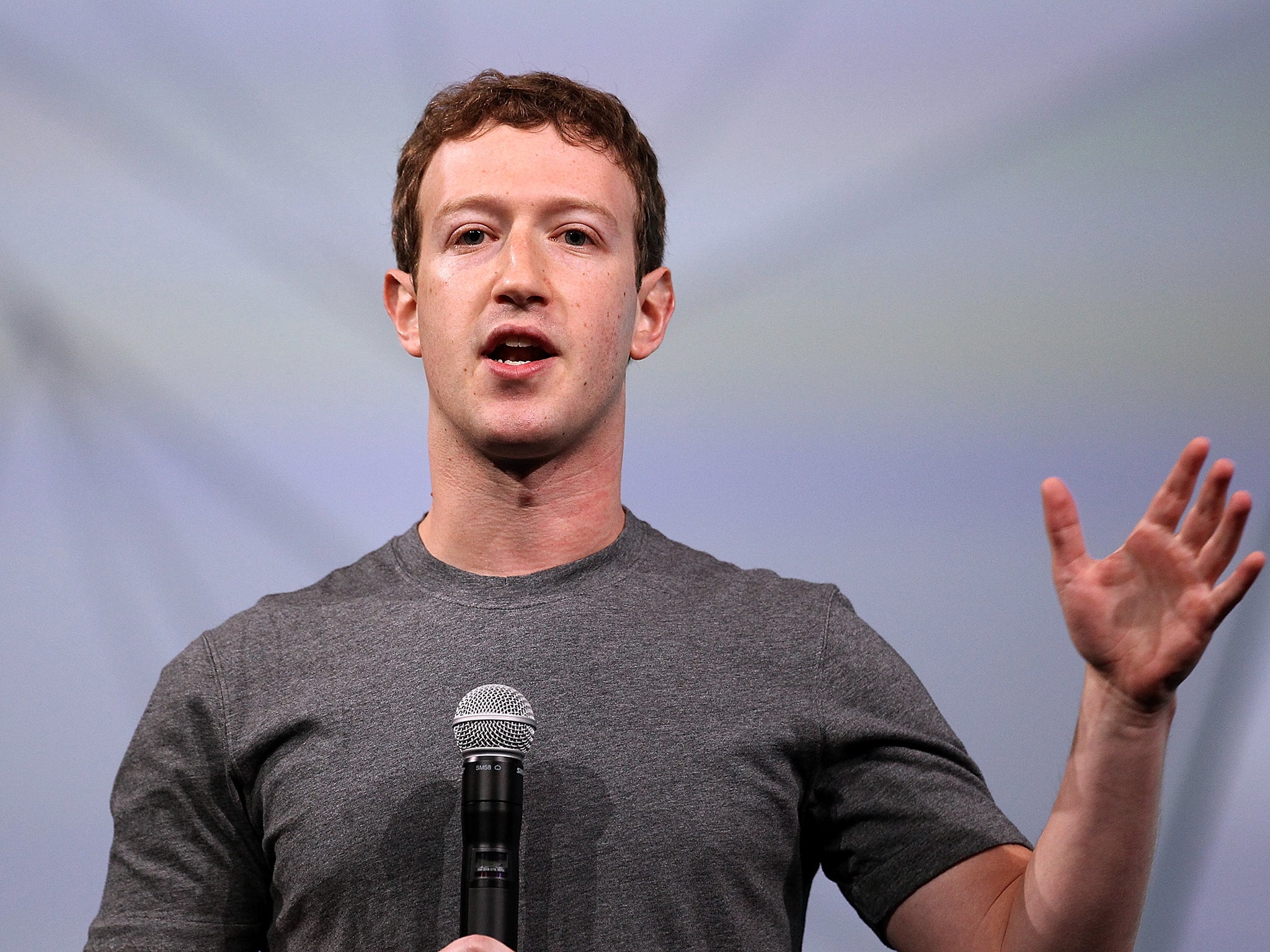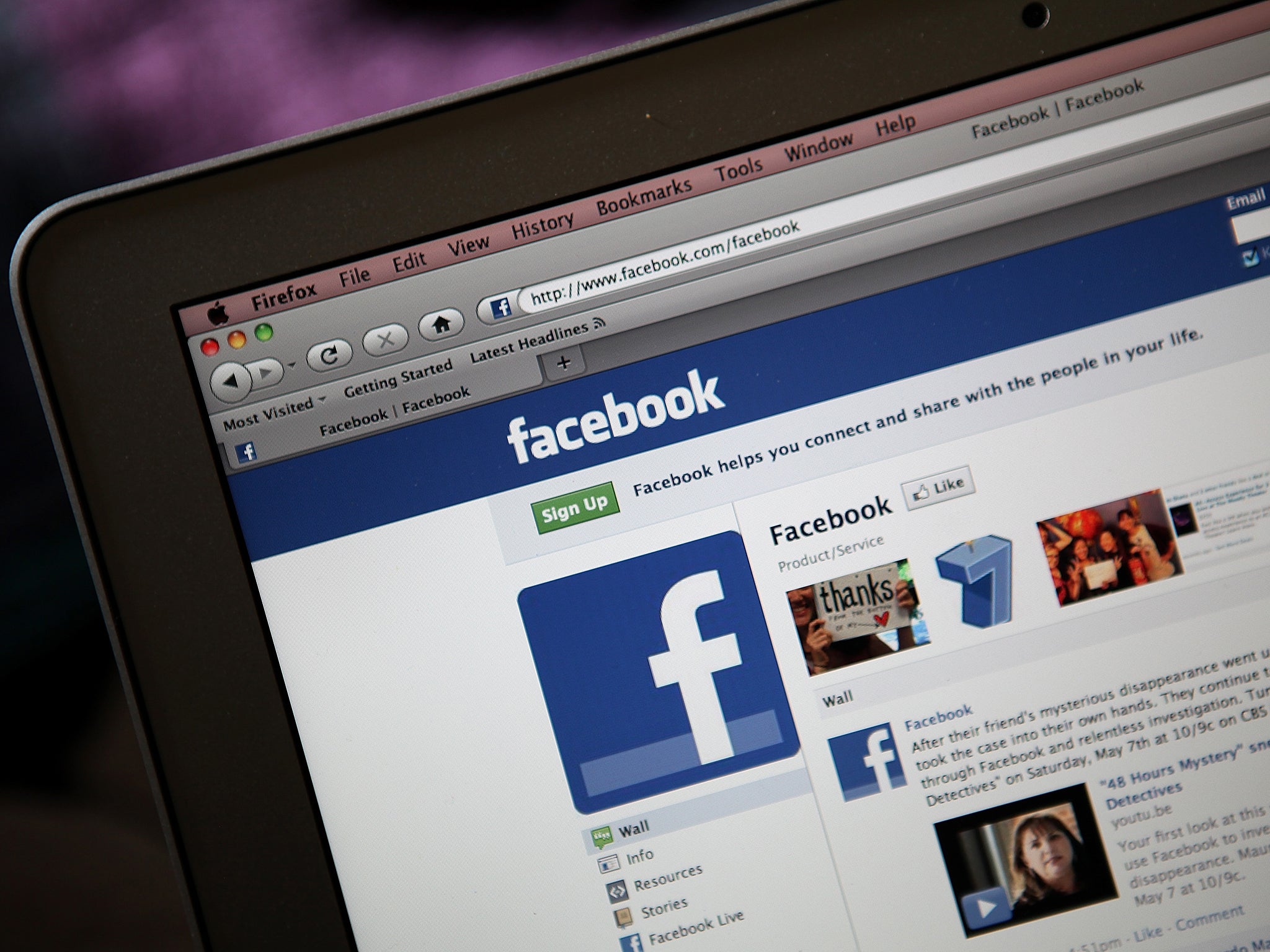India and Egypt turn down free internet from Facebook
Mark Zuckerberg launched his initiative as a way to provide four billion people in the developing world with Web access

Your support helps us to tell the story
From reproductive rights to climate change to Big Tech, The Independent is on the ground when the story is developing. Whether it's investigating the financials of Elon Musk's pro-Trump PAC or producing our latest documentary, 'The A Word', which shines a light on the American women fighting for reproductive rights, we know how important it is to parse out the facts from the messaging.
At such a critical moment in US history, we need reporters on the ground. Your donation allows us to keep sending journalists to speak to both sides of the story.
The Independent is trusted by Americans across the entire political spectrum. And unlike many other quality news outlets, we choose not to lock Americans out of our reporting and analysis with paywalls. We believe quality journalism should be available to everyone, paid for by those who can afford it.
Your support makes all the difference.Connecting people to the Internet is not easy in this impoverished farming district of wheat and millet fields, where working camels can be glimpsed along roads that curve through the low-slung Aravalli Hills.
So when Facebook chief executive Mark Zuckerberg helicoptered in about a year ago to visit a small computer lab and tout Internet for all, Osama Manzar, director of India’s Digital Empowerment Foundation, was thrilled.
But when Manzar tried Facebook’s limited free Internet service, he was bitterly disappointed. The app, called Free Basics, is a pared-down version of Facebook with other services, such as weather reports and job listings.
“I feel betrayed — not only betrayed, but upset and angry,” Manzar said. “He said we’re going to solve the problem with access and bandwidth. But Facebook is not the Internet.”
Zuckerberg launched his sweeping Internet.org initiative in 2013 as a way to provide 4 billion people in the developing world with Web access, which he sees as a basic human right.
But the initiative has hit a major snag in India, where in recent months Free Basics has been embroiled in controversy — with critics saying that the app which provides limited access to the web does a disservice to the poor and violates the principles of “net neutrality,” which holds that equal access to the Internet should be unfettered to all.
Activists such as Savetheinternet.in, professors from leading universities and tech titans such as Nandan Nilekani, the co-founder of Infosys, have spoken out against it. Another well-known Indian entrepreneur dubbed it “poor Internet for poor people.”
The debate escalated in recent weeks after India’s telecom regulator suspended Free Basics as it weighs whether such plans are fair, with new rules expected by the end of the month.

A week later, Free Basics was banned in Egypt with little explanation, prompting concern that the backlash could spread to other markets. More recently, Google pulled outof the app in Zambia after a trial period. An estimated 15 million people are now using Free Basics in 37 countries, including 1 million in India.
“It’s a very important test case for what will be India’s network neutrality regime,” said Sunil Abraham of the Center for Internet and Society in Bangalore.
India’s debate could impact the way other countries address the question of whether it’s fair for Internet service providers to price websites differently. The U.S. Federal Communications Commission’s rules on net neutrality went into effect only this past June.
Officials at Facebook launched an advertising blitz in recent weeks to counteract the negative publicity. “Who could possibly be against this?” Zuckerberg wondered in a Times of India editorial on 28 December.
“I think we’ve been a bit surprised by the strong reaction,” said Chris Daniels, Facebook’s vice president for Internet.org. “Fundamentally, the reason for the surprise is that the program is doing good. It’s bringing people online who are moving onto the broader Internet.”
India, a country of 1.2 billion, has the second highest number of Internet users in the world, but an estimated 80 percent of the population does not have Internet access.
India’s tech-savvy prime minister, Narendra Modi, is trying to combat this with an ambitious “Digital India” plan to link 250,000 village centers with fiber-optic cable and extend mobile coverage. He’s turned to the Indian tech community as well as Silicon Valley for help, securing an agreement with Google to provide free WiFi in railway stations.
India has130 million Facebook users, second only to the United States, a key market as the social media giant looks to expand beyond the developed world, where its growth has slowed.
“If Facebook manages to get another half a billion users in India, that’s a valuable set of eyeballs to sell to a political party or corporation,” Abraham said.
Facebook has long said that its program is about altruism, not eyeballs.
But it does reap new customers. Those who buy a SIM card from Facebook’s local mobile partner, Reliance Communications, are then prompted to pay for additional data. About 40 percent who sign up for Free Basics buy a data plan to move to the wider Web after 30 days, Daniels said. The service is still running despite the suspension. A Reliance spokesman said it is in “testing mode” and is not being promoted.
“The thing people forget about Free Basics is that it’s intended to be a temporary transition for people to give them a taste of the Internet and sign up. It’s a marketing program for the carrier in some sense,” said David Kirkpatrick, author of “The Facebook Effect.” But, he added: “The idea that it’s some kind of alternative Internet that’s a discriminatory gesture to the poor is the prevailing view among the Indian intelligentsia. It’s fundamentally misunderstood.”
Facebook has pledged to open up the selection process for companies with new applications to outside scrutiny, Daniels said. That’s a response to concerns by many in India’s tech community that Facebook’s process put India’s fledgling start-ups at a disadvantage.
The project’s proponents say that India’s needs are so great it can’t afford to suspend one program that could help.

Mahesh Uppal, a telecommunications consultant, notes that more than 10 percent of the country doesn’t have mobile phone coverage at all and India’s progress in extending fiber optic cable to village centers is proceeding at a glacial pace. Modi had set a goal of linking all 250,000 by 2016, but only 27,000 have cable so far and 3,200 are ready for use, according to a government report.
In comparison, some 80 percent of China’s villages are already linked by broadband.
In Alwar district in the northern state of Rajasthan, many remember when Zuckerberg came to visit but fewer know about Free Basics.
“I’ve heard it’s free and by Facebook and you don’t have to pay for it,” said Umer Farukh, 43, a folk musician. “But I don’t think Facebook should control it. The Internet should be for everybody.”
Farukh has only been computer literate for two years, but he’s already emailing and using YouTube to post videos and promote his band.
He’s become such a proponent that he has donated space for one of Manzar’s computer centers — part of a government initiative to build cyber hubs in minority communities — and encouraged the female members of his family to take classes, which is rare in his conservative community.
Farukh says that challenges to connecting India go far beyond data plans and fiber-optic cable or the government broadband that often sputters out. Wages are low and hours are long. Only about half of the women in his state are literate, and about a quarter of the young women in his neighborhood are kept at home and not educated.
“This place is very backward,” he said. “India as a society is lagging far behind in terms of Internet.”
In the small nearby community of Roja Ka Baas, ringed by fields of blooming mustard greens, residents are still awaiting the opening of their own planned WiFi center. They are struggling along on cheap mobile phones with slow 2G spectrum until then, they said.
Sakir Khan, 14, said that once the Internet finally arrived in this village, the first thing he would do would be to sign up for Facebook.
Farheen Fatima and Subuhi Parvez contributed to this report.
Copyright: Washington Post
Join our commenting forum
Join thought-provoking conversations, follow other Independent readers and see their replies
Comments